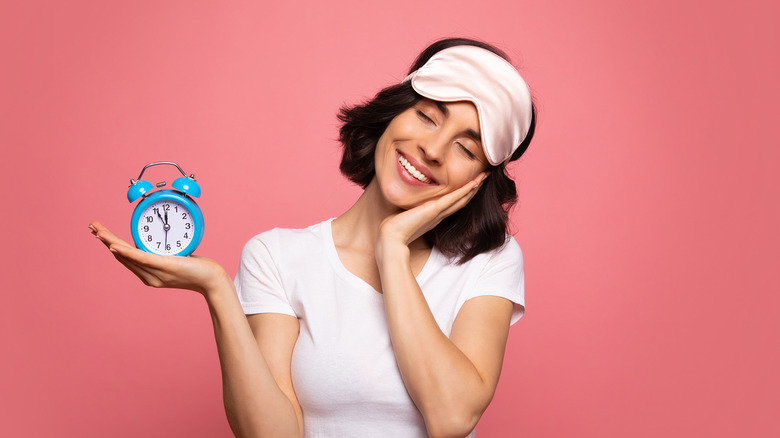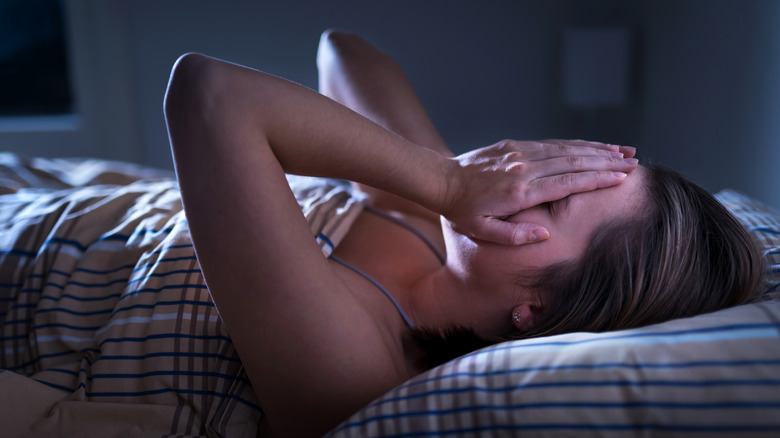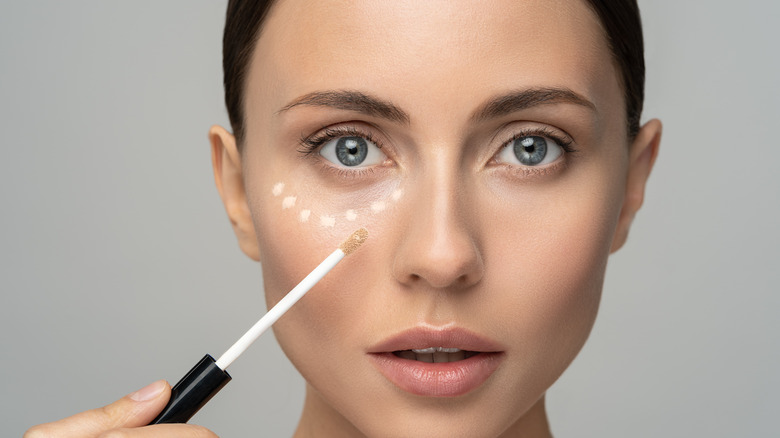How Sleep And Dark Circles Are Associated?
From concealer and cooling masks to non-surgical cosmetic procedures, whole industries have been built around people's desires to get rid of dark circles around their eyes. Healthline explains that in many cases dark circles can be treated but some people are more prone to pigmentation around their eyes. They write that as you get older, you may notice dark circles more and you may be genetically predisposed to dark circles. But how is sleep linked to dark circles? If you notice dark rings under your eyes then you'll likely look at your sleeping pattern first.
"The skin around the eyes is the thinnest skin on the body. It's also an area with very little structural support since the eyes sit in a hole called the eye socket," Marina Peredo, MD, dermatologist and associate clinical professor to The Strategist, "The eyeballs are held in place by muscles and ligaments, but the skin there has very little support."
Due to the fact that the skin around your eyes is super sensitive and thin, it shows fatigue quicker than other areas of your body. The Healthy notes that if you don't drink enough water, drink too much caffeine, don't sleep enough, or are too vigorous during your skincare routine, it may all show up under your eyes.
But how important is getting a full seven hours of beauty sleep when avoiding dark circles?
Does lack of sleep cause dark circles?
If you're wondering whether the continuous late-night work sessions or nights on the town are contributing to dark circles under your eyes, then the short answer is more than likely. Healthline explains that your sleep schedule can have a monumental impact on the way you look.
Over the last 18 months, many people have had to come to terms with a change in lifestyle. However, if you push your bedtime back by even a couple of hours or start sleeping for a lot longer than you normally would then it may change your complexion.
When you're tired your skin is likely to become duller and paler. Metro outlines that, to compensate for lack of sleep, your body produces more cortisol, which is the hormone that triggers you to be more stressed and alert. The increase in cortisol results in blood pumping quicker around your body and your blood vessels increase in size. As your skin is thinnest around your eyes this shows up as dark circles.
Dark circles and eye bags often go hand in hand for a very simple reason. Live Science explains that as the blood circulation around your eyes slows, blood can pool there leading to puffy, dark eyes. It really makes you question that fourth episode of your Netflix show when you consider what's happening to your body.
What else causes dark circles?
Fatigue may be the most popular assumption as to why you're suffering from dark circles. However, it isn't the only thing that can change the skin around your eyes.
Your overall lifestyle and health can really impact the way you look. Dermatologist Susan Van Dyke, MD told Everyday Health that when you're trying to bust dark circles, then you really need to look at what your body is and isn't consuming. "If you're protein-deficient or dehydrated, it's going to show in your eyes for sure," Van Dyke said, "There's no magic vitamin or mineral, just good nutrition." They recommend drinking between around two liters per day.
Similarly, plastic surgeon Joshua Zuckerman, MD told The Healthy that as the skin around your eyes is so delicate, going out in the sun for long periods of time without sunscreen on can lead to pigmentation. To avoid this you should wear SPF every day, wear sunglasses, and split up the time you spend in the sun.
Medical News Today outlines that, while your dark circles may be stubborn, you can get rid of them at home. They write that getting more sleep and creating a sleep schedule that's consistent should be your first port of call. You should also consider drinking more water. Using cold compresses or products with vitamin E and C may help you reduce the appearance of dark circles, and if you're still struggling you should reach out to your doctor.


